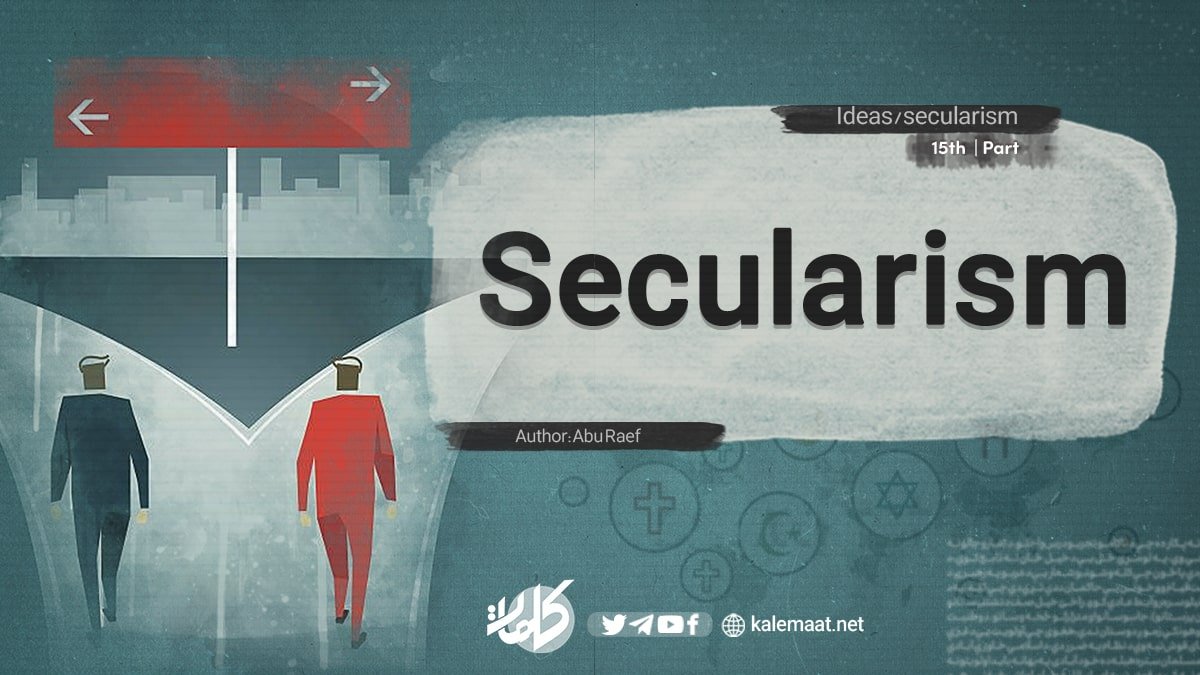Author: Abu Raef
Secularism (15th part)
Religions that were formed based on Naturalism
These two religions, in fact, destroyed the same small effect of religiosity that remained in the Christian community. The religion of “Deism” The first religion and theory that was formed in order to form and spread atheism and not to accept the influence of God in the Christian community was the religion of “Rabobin”, known as “deism”.
This religion denied revelation but still believed in God. This religion, in fact, pursued transitional thinking; Because the transition from God to Christianity toward rejection of God and its general denial was impossible and Unbelievable; For this reason, they did not suddenly deny the existence of God, but accepted the existence of God, but denied the revelation.
“This religion was the closest possible and clear reflection to Newton’s world, which strained and circulated according to the law,” Brenton said of the religion. “In this religion, God is the person responsible for managing, Creating, building, and moving this world as a tool.” Among the leaders of this religion are people such as “Volter” and “Bab” and others who believed in the necessity of believing in God Almighty but denied the revelation; Because if they accepted the revelation, it was as if they considered the teachings of their enemy, the church, to be correct, and their faith was not the true faith that was the main purpose of the religions; Because every action and effect of the God they believed in was in their view that they believed that God created the world and then left it to its Situation according to the rules, it was similar to Newton’s theory that the world of creation is like the maker of the clock when it and then releases it to move and act on its own.
They said: God has given man intellect and then freed him to use it according to his will, although man is part of the great tool of the world, but he needs to adjust his interests and intellect according to the law of nature. In the eyes of the owners of this religion, the prayer and worship of this god, who is like the maker of the clock and cannot interfere in what he has made, even if he wants, will be useless.
In the eyes of the owners of this theory, the God did not appear to Prophet Moses (PBUH) in the desert of Sinai and did not send his only child to earth to save the sinful people, but it is not possible for this God to have a child at all. The material atheistic religion of the God-fearing religion inspired some of its contemporaries that this far and useless god, which is not necessary, should be denied.
As the Wisdom of Falter says that if God does not exist, we must invent it! But when nature exists, it deprives us of the invention of God, and if we acknowledge the existence of God, we have somehow acknowledged the truth of the church’s claims, so it is better that in order to oppose the church, we must consider the existence of God impossible. Some were so exaggerated that God considered Galjala to be the worst positive object, especially if God is the Roman Catholic Church.
“Some of them had reached the farthest possible degree in denial, so that they had called us to remove the name of God Almighty,” Kerson writes. In this regard, Dubach says: “The traditional belief of God is a fabrication of contradictions, that is, belief in God is the common misguidance of the human race.” These were the general lines and basic principles of the battle between the church and religion in the eighteenth century.
It should also be noted that this battle was limited to educated and cultural philosophers and classes and did not spread to the general public, and the story was general and inclusive, except after the French Revolution in the late eighteenth century and in 1789. It took place, this issue became general and inclusive, and a general and all-encompassing battle was created.
With the uprising of the French Revolution, a clear sign of the historical signs of Europe was drawn and a new era of the battle between religiosity and atheism was created. For this reason, in the next article, we will examine the subject of the French Revolution, its effects on Western society, and what causes this uprising.



